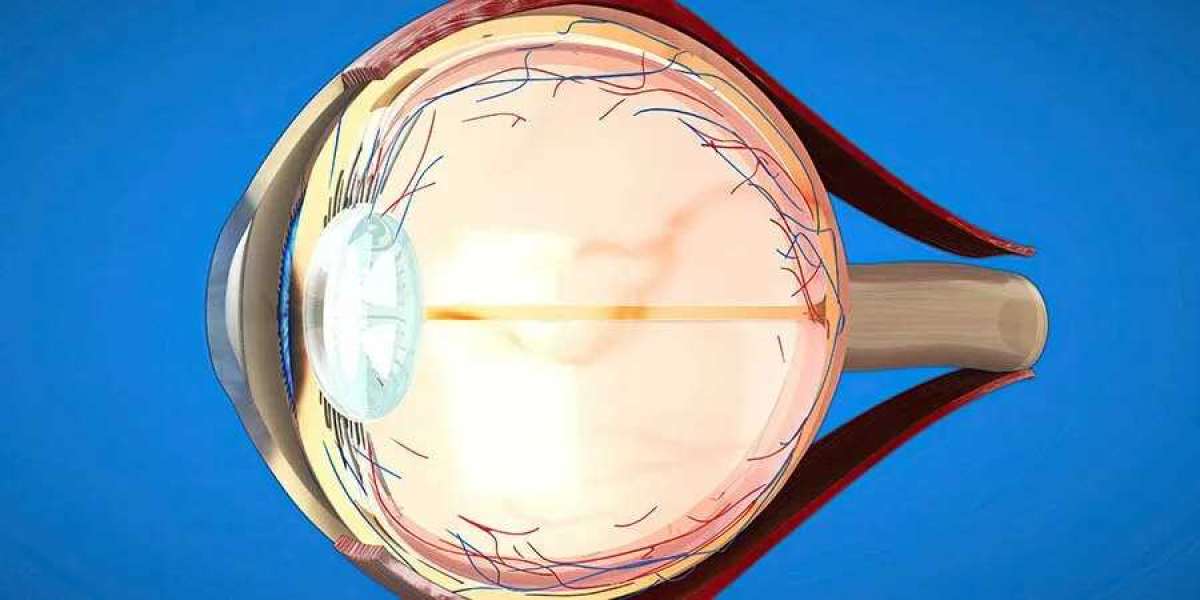When Your Eyes Send a Warning
Sometimes, our eyes whisper before they shout.
If you’ve recently started seeing flashes of light, floating spots, or shadows drifting across your vision, your eyes might be trying to tell you something important.
These subtle changes can be early signs of a serious condition that needs prompt medical care — retinal detachment.
Understanding What Retinal Detachment Really Means
The retina is a thin, light-sensitive layer of tissue at the back of the eye.
It captures images and sends them to the brain through the optic nerve — making clear vision possible.
When this delicate tissue pulls away from its normal position, it leads to a condition called retinal detachment, which can cause partial or total vision loss if not treated quickly.
Why Flashes and Floaters Matter
Most people experience floaters at some point — those tiny specks or cobweb-like shapes that move when you shift your eyes.
However, when these floaters suddenly increase or are accompanied by flashes of light, it could signal that the retina is being tugged or torn.
Ignoring these symptoms could lead to permanent vision damage that might have been prevented with early Retinal Detachment Treatment.
Common Causes Behind Retinal Detachment
Several factors can increase your risk of retinal detachment.
Aging naturally causes the gel-like substance in the eye (vitreous) to shrink, sometimes pulling the retina away.
People who are highly myopic (nearsighted), have suffered eye injuries, undergone previous eye surgeries, or have a family history of retinal problems are more likely to experience this condition.
Other Warning Signs You Should Never Overlook
In addition to flashes and floaters, some people notice a dark curtain or shadow moving across their vision.
This could mean part of the retina has already detached.
Blurry or distorted central vision, sudden loss of peripheral sight, or seeing wavy lines can also be signs that you need urgent Retinal Detachment Treatment.
The Importance of Early Diagnosis
When it comes to retinal detachment, time is vision.
The longer the retina stays detached, the greater the risk of permanent vision loss.
An immediate visit to an eye specialist can make all the difference, as early intervention allows doctors to reattach the retina before the damage becomes irreversible.
How Retinal Detachment Treatment Works
Modern advancements have made Retinal Detachment Treatment safer, quicker, and more effective.
Depending on the severity, your doctor may recommend laser therapy (photocoagulation), cryotherapy (freezing treatment), pneumatic retinopexy, scleral buckle, or vitrectomy surgery.
Each method aims to reattach the retina and restore proper eye function, preserving as much vision as possible.
Laser and Cryotherapy — Stopping Detachment Early
If the retina has only begun to tear but not fully detached, laser treatment or cryotherapy can seal the edges and prevent further separation.
These minimally invasive treatments are often done under local anesthesia and allow for quick recovery.
Prompt action here can completely prevent the need for major retinal surgery later on.
Surgical Solutions for Advanced Detachment
When the retina has already separated, surgery becomes essential.
Procedures like vitrectomy remove the vitreous gel and replace it with a gas bubble or silicone oil to hold the retina in place while it heals.
Though the process may sound complex, it can successfully restore vision if done on time and under the care of skilled retinal surgeons.
After Treatment: Caring for Your Eyes
Recovery after Retinal Detachment Treatment requires patience and follow-up care.
Patients are usually advised to rest, avoid heavy lifting, and maintain specific head positions as directed by their doctor.
Regular checkups help ensure that the retina stays attached and that the healing process is smooth.
The Role of Regular Eye Health Checkups
Even without symptoms, regular comprehensive eye checkups play a vital role in maintaining retinal health.
Eye specialists can detect small retinal tears or changes before they develop into detachment.
Early detection through routine screenings is one of the most powerful tools in preventing sight-threatening complications.
Why Choosing the Right Eye Hospital Matters
The precision and expertise required for retinal surgery make choosing the right eye hospital essential.
A well-equipped hospital with advanced retinal imaging, laser systems, and experienced ophthalmologists ensures both safety and success.
Choosing an institution known for excellence in retinal care can mean the difference between vision saved and vision lost.
Maxi Vision: A Super Speciality in Retinal Care
At the heart of every successful treatment is not just technology, but compassion and experience.
Maxi Vision Eye Hospital stands as a super speciality center offering advanced diagnostics, modern surgical techniques, and personalized patient care for every retinal condition.
Its team of experienced retina specialists combines medical precision with genuine empathy, ensuring that every patient receives the attention and care they truly deserve.
When to Seek Help Immediately
If you experience sudden flashes of light, a shower of new floaters, or a shadow that seems to cover part of your vision — do not wait.
These could be signs of a developing retinal tear or detachment.
Timely consultation and Retinal Detachment Treatment can save your sight and restore your confidence in everyday life.
Empowering Yourself with Knowledge and Action
Understanding your eye’s signals is the first step to protecting your vision.
Flashes, floaters, or shadows may seem harmless, but they could be warnings of something more serious.
By acting early and choosing expert care, you take charge of your eye health and preserve one of life’s most precious gifts — clear, beautiful vision.
Conclusion
Your eyes are remarkable, delicate organs that deserve proactive attention and expert care.
When signs like flashes or floaters appear, it’s not just an inconvenience — it’s a call to protect your sight before it’s too late.
With early diagnosis and the right Retinal Detachment Treatment, guided by specialists at a trusted super speciality hospital like MaxiVision Eye Hospital, restoring and safeguarding your vision becomes a reassuring reality.







